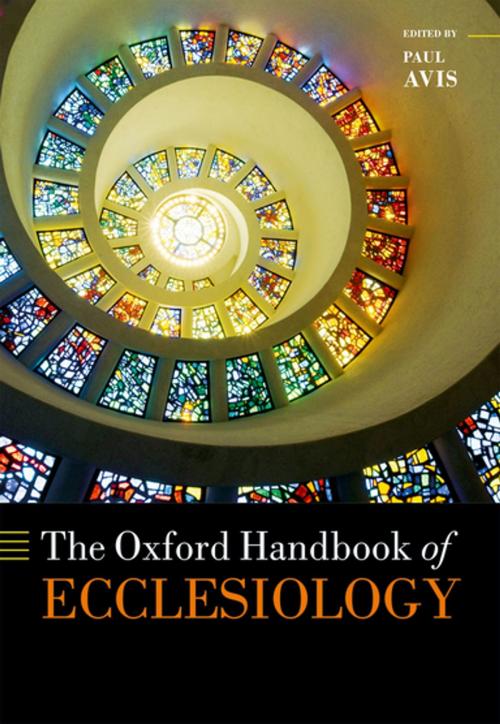| Author: | ISBN: | 9780191081385 | |
| Publisher: | OUP Oxford | Publication: | June 28, 2018 |
| Imprint: | OUP Oxford | Language: | English |
| Author: | |
| ISBN: | 9780191081385 |
| Publisher: | OUP Oxford |
| Publication: | June 28, 2018 |
| Imprint: | OUP Oxford |
| Language: | English |
The Oxford Handbook of Ecclesiology is a unique scholarly resource for the study of the Christian Church as we find it in the Bible, in history and today. As the scholarly study of how we understand the Christian Church's identity and mission, ecclesiology is at the centre of today's theological research, reflection, and debate. Ecclesiology is the theological driver of the ecumenical movement. The main focus of the intense ecumenical engagement and dialogue of the past half-century has been ecclesiological and this is the area where the most intractable differences remain to be tackled Ecclesiology investigates the Church's manifold self-understanding in relation to a number of areas: the origins, structures, authority, doctrine, ministry, sacraments, unity, diversity, and mission of the Church, including its relation to the state and to society and culture. The sources of ecclesiological reflection are the Bible (interpreted in the light of scholarly research), Church history and the wealth of the Christian theological tradition, together with the information and insights that emerge from other relevant academic disciplines. This Handbook considers the biblical resources, historical development, and contemporary initiatives in ecclesiology. It offers invaluable and comprehensive guide to understanding the Church.
The Oxford Handbook of Ecclesiology is a unique scholarly resource for the study of the Christian Church as we find it in the Bible, in history and today. As the scholarly study of how we understand the Christian Church's identity and mission, ecclesiology is at the centre of today's theological research, reflection, and debate. Ecclesiology is the theological driver of the ecumenical movement. The main focus of the intense ecumenical engagement and dialogue of the past half-century has been ecclesiological and this is the area where the most intractable differences remain to be tackled Ecclesiology investigates the Church's manifold self-understanding in relation to a number of areas: the origins, structures, authority, doctrine, ministry, sacraments, unity, diversity, and mission of the Church, including its relation to the state and to society and culture. The sources of ecclesiological reflection are the Bible (interpreted in the light of scholarly research), Church history and the wealth of the Christian theological tradition, together with the information and insights that emerge from other relevant academic disciplines. This Handbook considers the biblical resources, historical development, and contemporary initiatives in ecclesiology. It offers invaluable and comprehensive guide to understanding the Church.















